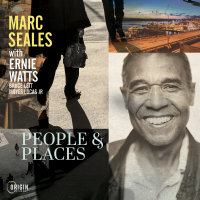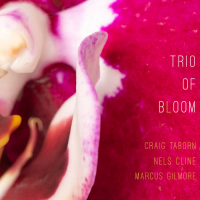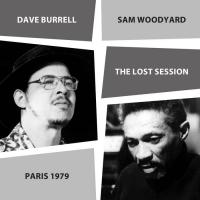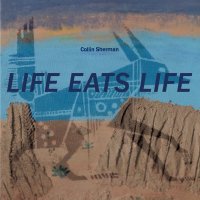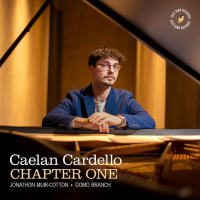Home » Jazz Articles » Album Review » Joe Harriott Quintet: Abstract/Southern Horizons/Free Form
Joe Harriott Quintet: Abstract/Southern Horizons/Free Form
Joe Harriott
saxophone1928 - 1973
In 2012, Proper Records put out an excellent four volume set and at a remarkably attractive price. Younger fans were able to hear, perhaps for the first time, the saxophonist's progression through bebop to the abstraction for which he has become renowned. Of most importance to aficionados were the never before CD release of Southern Horizons and the restoration of Abstract, briefly available on Universal around 1999/2000 but since deleted. Featuring excellent sleevenotes that drew on Alan Robertson's authoritative biography of Harriott, the set also included the already extant Swings High (1967). Though this was issued with permission from Cadillac Records, how necessary this was in the circumstances is open to discussion. Its inclusion did, however, allow younger fans to hear how the guy sounded on a later blowing session.
Dutton Vocalion's reissue last year of Movement (1963) and High Spirits (1964) as a twofer has now been followed with the lovely, groundbreaking Joe Harriott-

John Mayer
guitarb.1977
Poll Winners Records have now also reissued Southern Horizons and Abstract, along with Harriott's first essay in free jazz, Free Form. Also present here are six tracks from the mid-fifties, which again can be found on the Proper Records' set. As I said above, confusing ain't it? Only, the mixed blessing that is Personal Portrait (1967), a set featuring tracks with a larger ensemble and another with strings, remains unavailable.
The music on Southern Horizons is a good late bop set culled from two EPs made for pioneer jazz producer Denis Preston's Lansdowne Series. Bassist

Coleridge Goode
bass1914 - 2015
Bobby Orr
drumsb.1928
Harry South
b.1929Hank Shaw
b.1926
Booker Little
trumpet1938 - 1961

Charlie Parker
saxophone, alto1920 - 1955
Frank Holder
bongosNevertheless, anyone buying this set will no doubt do so for Abstract and its predecessor Free Form. Firstly, both records were so much more than leader plus sidemen sets. There is an intricacy to them that recalls baroque music and a shared recognition that 'abstraction' in this context does not mean 'without form' but rather it replaces pre-arranged or pre-determined form with emergent form. The bonus tracks, as noted available elsewhere, are fine but in this context make-weights.
Free Form is the first genuinely distinctive and ground-breaking British jazz release, a music that speaks on its own terms. Later replaced by Bobby Orr, it features

Phil Seamen
drumsb.1926

Pat Smythe
piano1923 - 1983

Shake Keane
trumpet1927 - 1997

Chris Barber
trombone1930 - 2021
Nothing lasts. Nothing is fixed. The record's allusions to bop are oblique and almost ironic and at times there is an almost burlesque quality to these pieces. The playing is looser with the form and structure guiding but not determining the performances. Pianist Pat Smythe's role is no longer that of simply comping behind the front line, who improvise singly and together. He comments and interjects, as well. Seamen's role has shifted from time-keeping and, at times, it is almost as if he is now part of the front-line. As for Coleridge Goode, he seems to imply the pulse rather than state and restate it for the other musicians.
It would be hard to choose between Free Form and Abstract. Both are remarkable achievements. The music is simultaneously loose and fragmentary but has a sense of flow and conjures up a series of distinct moods. It appears now, if not at the time, as really quite accessible. The parallel here is, of course, with

Ornette Coleman
saxophone, alto1930 - 2015
The music is again oblique but also has a strong sense of shape to it. "Subject" opens with a series of sixteenth notes played at a fast pace by the two horns before settling into a strong blues groove over walking bass lines. There is a deft use of counterpoint from Harriott and Keane and a strong and highly rhythmic solo from Goode. But here and elsewhere it is the empathy and contrast between the saxophonist and trumpeter that is most immediately obvious. In their hands lies the dynamic behind this music. "Shadows" begins with a descending scale played by the horns and repeated by Pat Smythe with a trill before ending on an interrupted cadence. If anything, the form here is far looser than on the opening track and its broken and angular shapes lend the piece a dark, brooding quality. A lovely take on

Sonny Rollins
saxophoneb.1930
The remaining four tracks come from the earlier session with Seamen with Frank Holder again featured on bongos on both "Tonal" and the closer "Compound." Seamen's drumming perhaps owes more to his love of African percussion than is the case with Orr and his performance on "Tonal," in particular, is full of excitement, as he drops spectacular bombs behind the soloists. Smythe's playing here—and on "Idioms" -has just a few hints of

McCoy Tyner
piano1938 - 2020

John Coltrane
saxophone1926 - 1967

Graham Collier
composer / conductor1937 - 2011
Track Listing
Tracks: Abstract Subject; Shadows; Oleo; Modal; Tonal; Pictures; Idioms; Compound. Southern Horizons Still Goofin'; Count Twelve; Senor Blues; Jumpin' With Joe; Southern Horizons; Caravan; Liggin'; You Go To My Head; Tuesday Morning Swing. Free Form Formation; Coda; Abstract; Impression; Parallel; Straight Lines; Calypso; Tempo. Bonus Tracks: Just Goofin'; Everything Happens to Me; Just Friends; Joe's Blues; Blues Original; My Heart Belongs To Daddy.
Personnel
Personnel: Abstract Joe Harriott alto saxophone; Shake Keane trumpet, fluegelhorn; Pat Smythe piano; Coleridge Goode bass; Bobby Orr tracks 1-4; Phil Seamen drums tracks 5-8; Frank Holder bongos tracks 5, 8 only. Southern Horizons Joe Harriott alto saxophone; Hank Shaw trumpet; Harry South piano; Coleridge Goode bass; Bobby Orr drums. Free Form Joe Harriott alto saxophone; Shake Keane trumpet, fluegelhorn; Pat Smythe piano; Coleridge Goode bass; Phil Seamen drums.
Album information
Title: Abstract/Southern Horizons/Free Form | Year Released: 2015 | Record Label: Poll Winners Records
Tags
Comments
PREVIOUS / NEXT
Support All About Jazz
 All About Jazz has been a pillar of jazz since 1995, championing it as an art form and, more importantly, supporting the musicians who make it. Our enduring commitment has made "AAJ" one of the most culturally important websites of its kind, read by hundreds of thousands of fans, musicians and industry figures every month.
All About Jazz has been a pillar of jazz since 1995, championing it as an art form and, more importantly, supporting the musicians who make it. Our enduring commitment has made "AAJ" one of the most culturally important websites of its kind, read by hundreds of thousands of fans, musicians and industry figures every month.
Go Ad Free!
To maintain our platform while developing new means to foster jazz discovery and connectivity, we need your help. You can become a sustaining member for as little as $20 and in return, we'll immediately hide those pesky ads plus provide access to future articles for a full year. This winning combination vastly improves your AAJ experience and allow us to vigorously build on the pioneering work we first started in 1995. So enjoy an ad-free AAJ experience and help us remain a positive beacon for jazz by making a donation today.

London
Concert Guide | Venue Guide | Local Businesses
| More...





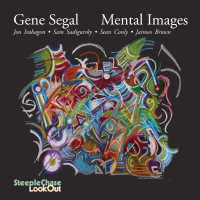


 Buy Now
Buy Now





